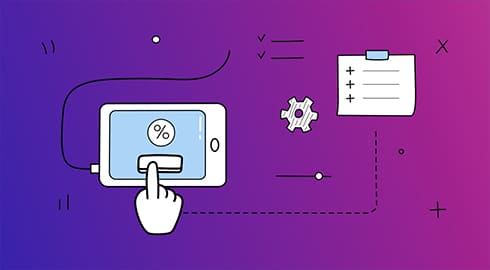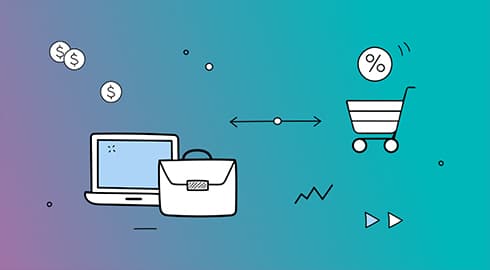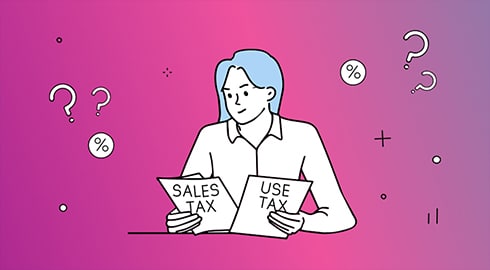Welcome to the wild world of SaaS sales tax compliance! It’s a world where navigating the complex sales tax regulations of each state can feel like a never-ending game of whack-a-mole. For startup SaaS companies, this can be a particularly daunting challenge as they try to grow their business while grappling with the ever-changing sales tax landscape.
Navigating the perilous grounds of sales tax on software subscriptions has become one of the major pain points when it comes to B2B sales tax. Having to double-check your product catalog in every state to make sure you’re charging the correct sales tax rate and complying with each state’s tax laws can make any entrepreneur’s head spin.
But SaaS companies don’t have to lose sleep over compliance worries anymore. Automated SaaS sales tax compliance is possible with a SaaS tax tool that takes the guesswork out of sales tax calculations and ensures that you’re compliant in every state, no matter how the SaaS sales tax landscape evolves.
The growing pains and complexities of SaaS sales tax
As the SaaS industry grows, so too do the complexities of sales tax compliance. And with the as-a-service market size expected to reach USD 2,378.07 billion by 2029, the complexities are huge. And overcoming the following challenges will become harder as the market expand:
Determining which states to collect and remit sales tax in
With over 12,000 taxing jurisdictions in the US, it can be difficult for SaaS companies to determine which states they are required to collect and remit sales tax in. This is especially true if they have customers in multiple states, as each state has its own sales tax rules and regulations.
To illustrate the challenge, let’s just consider three states:
- In New Jersey, SaaS is taxable except when being used for business purposes, then it is exempt.
- In Ohio, SaaS is only taxable for business use and non-taxable for personal use.
- In Texas, SaaS is considered part of a data processing service and is only taxed on 80% of the product price.
And then there are numerous states, such as California, Florida, and Idaho, where SaaS are fully exempt.
Calculating state-specific sales tax correctly
Even if SaaS companies know which states to collect and remit sales tax in, calculating the correct amount of sales tax can be difficult. This is because different states and local jurisdictions have their own sales tax rate, where they tax SaaS according to its classification and use.
Keeping up with changing sales tax laws
Due to the novelty of the offering, SaaS sales tax laws are still evolving. Which makes it difficult for SaaS companies to keep up with the latest regulations, especially as each state has its own tax laws regarding software and digital product taxability.
Navigating these challenges can be overwhelming for entrepreneurs and business owners, especially when they’re trying to focus on growing their business.
Fortunately these challenges can be overcome with an automated tax tool. .
The benefits of automated SaaS sales tax by state
Automated SaaS sales tax compliance offers several important benefits for businesses. And the time you save on manual compliance research is just the start.
Create more reliable growth strategies
Automated SaaS sales tax allows businesses to develop reliable and sustainable growth strategies that aren’t built on guesswork and aren’t hampered by human error. By removing the time-consuming and error-prone element of manual compliance, businesses can focus on expanding their customer base and increasing revenue.
Realize reliable business development
Automated compliance also saves you money by streamlining tax preparation and eliminating the need for manual calculations and wasted resources. The cost-savings can be invested into development programs that will help your company stay on the cutting edge of the rapidly evolving SaaS industry.
Protect your business from exposure with first-time-right compliance
With first-time-right tax preparation, businesses can avoid costly mistakes and potential penalties. Automated sales tax compliance, which includes calculating, collecting, and remitting sales tax, can protect you from exposure down the line.
Make taxes a welcome part of the company instead of a “no-go” area
Perhaps most importantly, automated compliance makes taxes a welcome part of the company instead of a dreaded burden. By removing the stress and hassle of sales tax compliance, businesses can focus on what they do best while staying on top of their tax obligations.
Of course, keeping compliance automated in a constantly changing tax landscape can be challenging as well. That’s where Complyt comes in.
Don’t let sales tax changes catch you off guard in the evolving SaaS industry
Complyt is a trusted tax partner for businesses navigating their way through the often murky water of SaaS sales tax. And beyond our fully automated SaaS tax tool, Complyt also offers our clients expert guidance and support to help you stay up to speed with the latest regulations and changes (as well as the benefits and opportunities they hold for your business).
SaaS sales tax compliance can seem like a complex and challenging landscape, but it doesn’t have to be.
Let Complyt help you find reliability and assurance throughout the growing pains of the SaaS sales tax.









